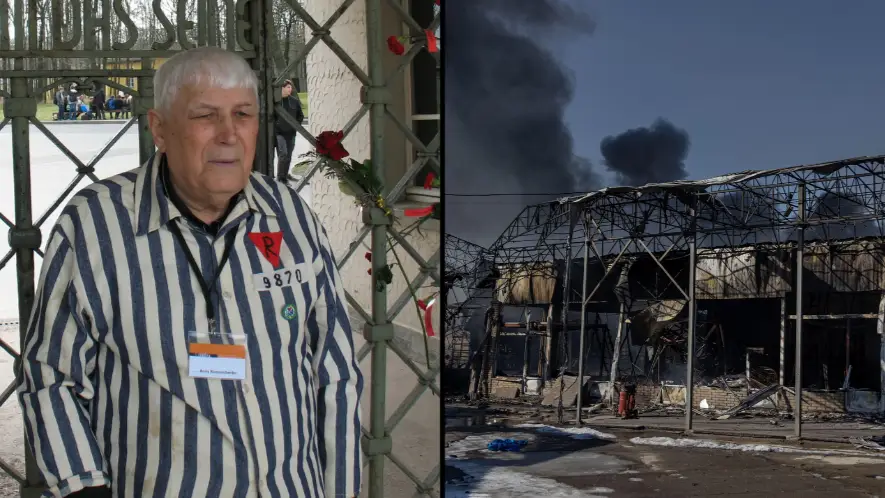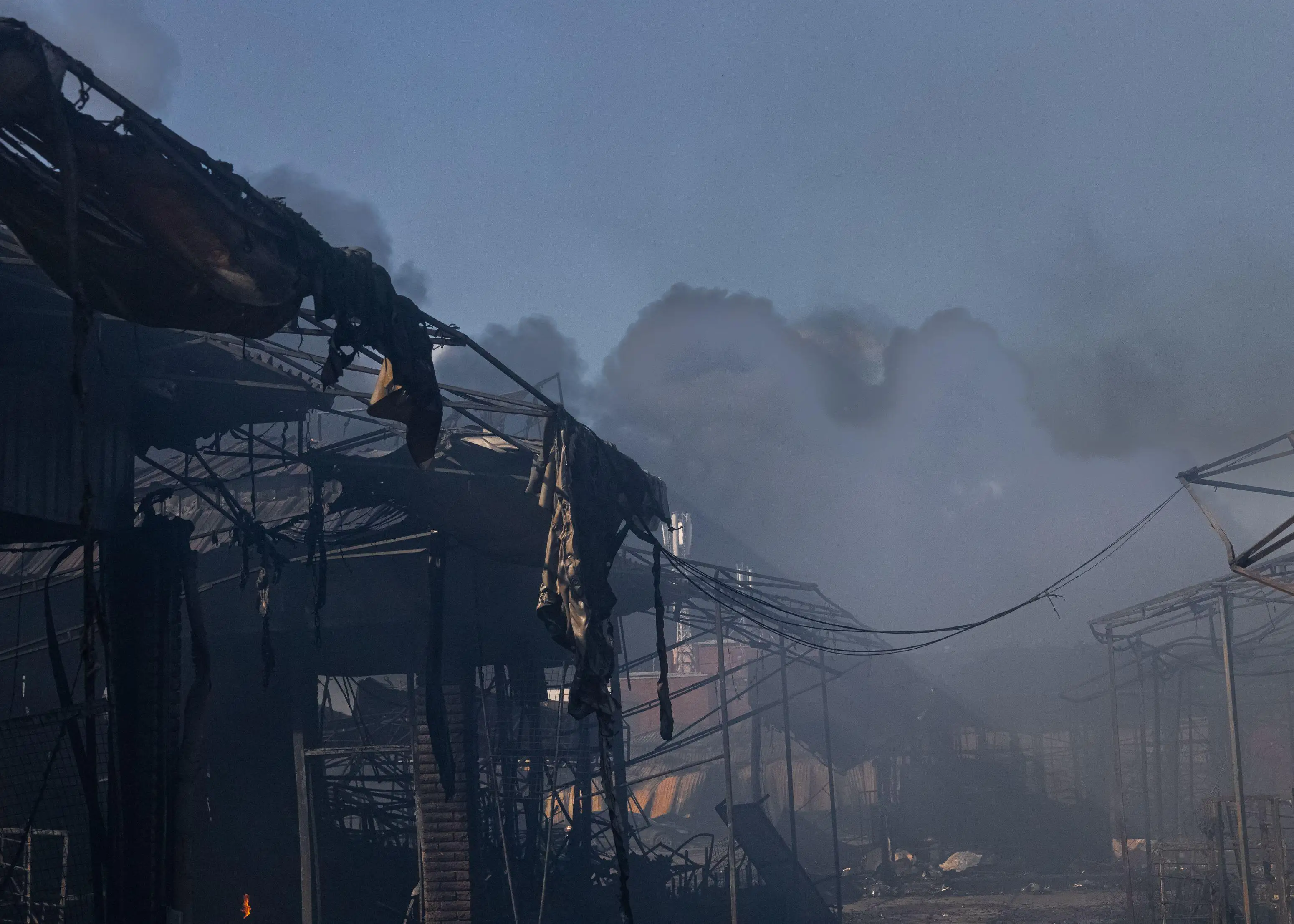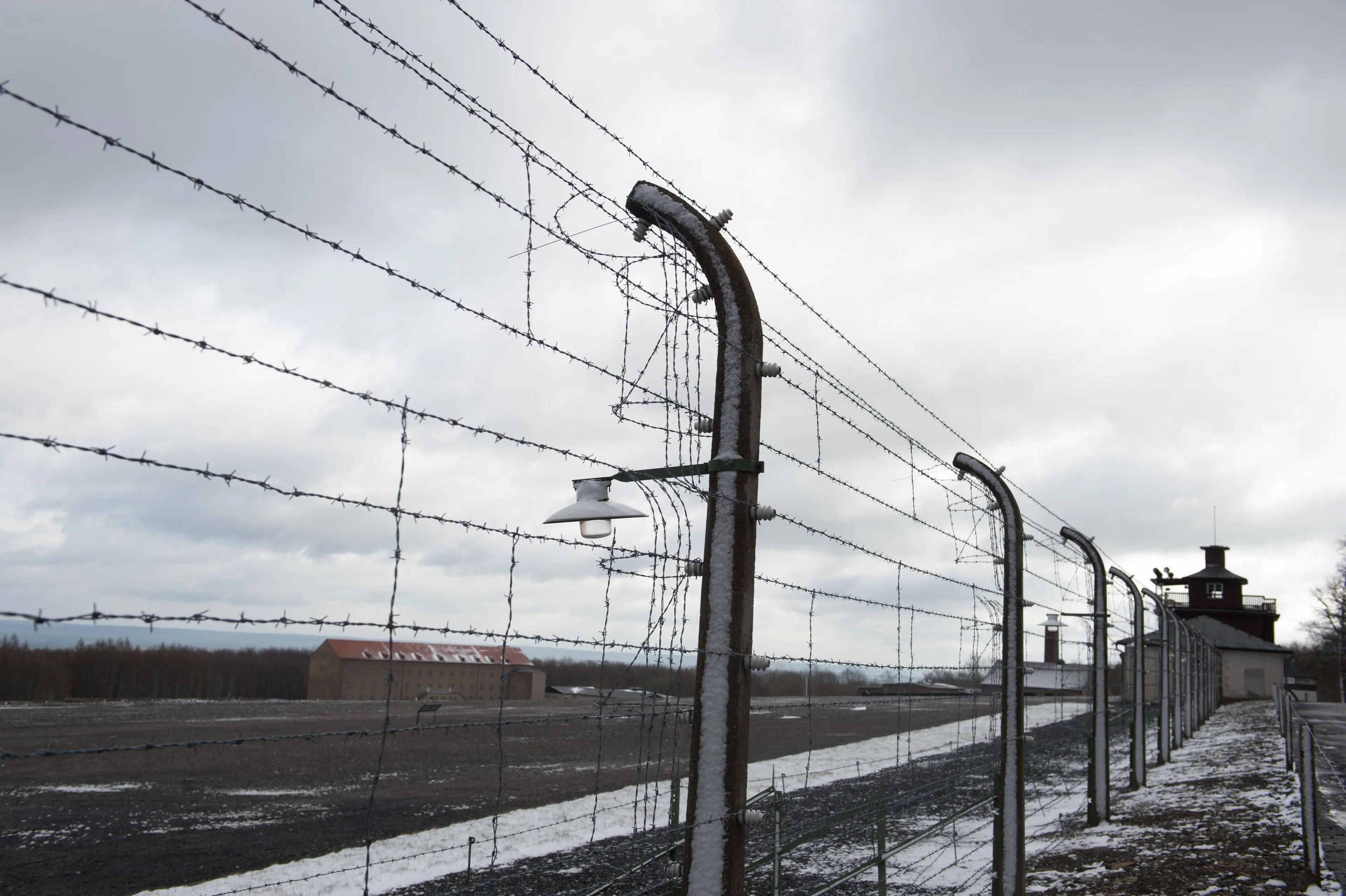
Survivor of four Nazi concentration camps Boris Romantschenko has died after Russian troops bombed his Ukrainian home in the northeastern city of Kharkiv.
Ukraine's second-largest city has faced relentless attacks conducted by Russia for almost a month now, with Romantschenko, 96, being one of the latest victims after his apartment block was shelled.

The Buchenwald and Mittelbau-Dora Memorials Foundation announced his death shortly after being informed by his family.
The foundation said they were 'deeply disturbed' by the news and issued a statement mourning the loss of Romantschenko, who served as a vice president.
"We mourn the loss of a close friend," the statement read on Twitter. "We wish his son and granddaughter, who brought us the sad news."
The statement added that as Putin claims the Russian invasion is an attempt to 'de-Nazify' Ukraine, holocaust survivor Romantschenko 'worked intensely on the memory of Nazi crimes'. He was held hostage in four concentration camps during World War II.
The foundation revealed the 96-year-old spent many of his years educating the public about the horrors of 1939 to 1945 and the terror of the Nazi era.
Romantschenko, born in Bondari in 1929, was captured by Nazis following the invasion of the Soviet Union, resulting in him being deported to Germany in 1942, as reported by ABC News.
Despite not being Jewish, Romantschenko was forced to do hard labour at a camp as part of the Nazi's intimidation tactics against Ukraine. He tried to escape the following year.
After the failed escape plot, he was sent to the Buchenwald concentration camp, where it is estimated 56,545 people were killed.
He was also forced to build the V-2 rocket while at the Mittelbau-Dora, Bergen Belsen and Peenemünde camps.
Following the news of the holocaust survivor's death, it prompted the head of Ukraine's presidential office Andriy Yermak, to shoot down claims of Putin invading Ukraine to protect those being 'abused' by neo-Nazis.

"This is what they call the 'operation of de-Nazification'," Yermak said. "The whole world sees Russia's cruelty."
Many others have also rebuked Putin 'de-Nazifying' Ukraine as his only motive for the invasion.
Earlier this month, Professor of Holocaust Studies at Brandeis University in Massachusetts Laura Jockusch told NPR Putin had been widely spreading misinformation about genocide in Ukraine for a long time before the war escalated.
"Putin has been repeating this 'genocide' myth for several years and nobody in the West seems to have listened until now," she said.
"There is no 'genocide,' not even an 'ethnic cleansing' perpetrated by the Ukraine against ethnic Russians and Russian-speakers in the Ukraine.
"It is a fiction that is used by Putin to justify his war of aggression on the Ukraine."